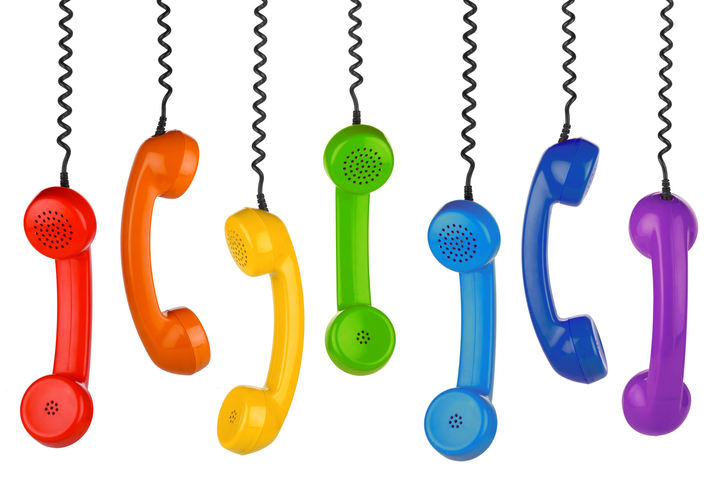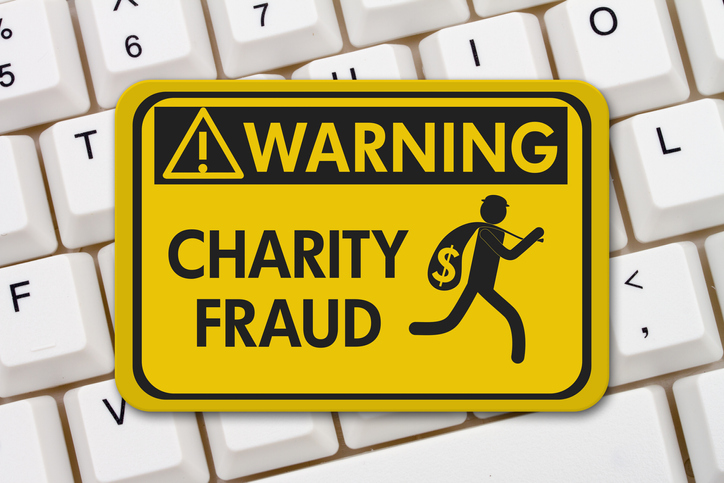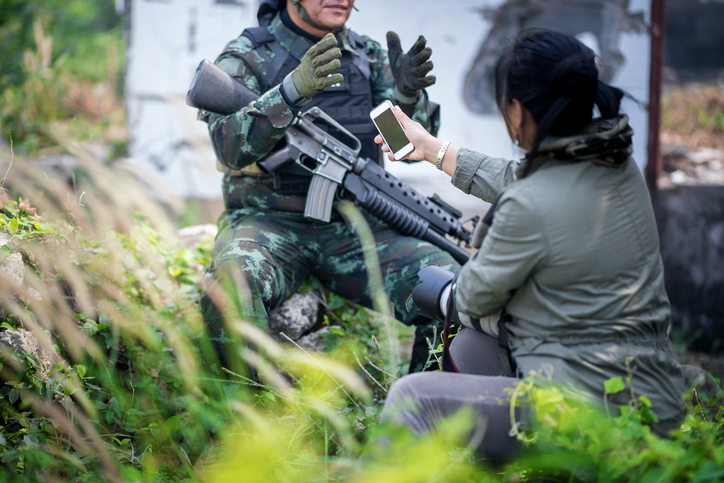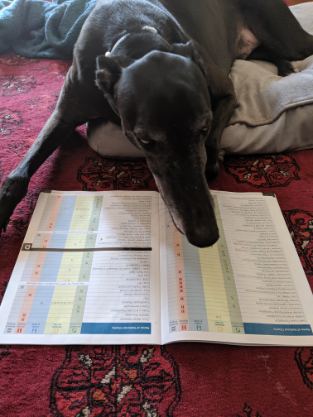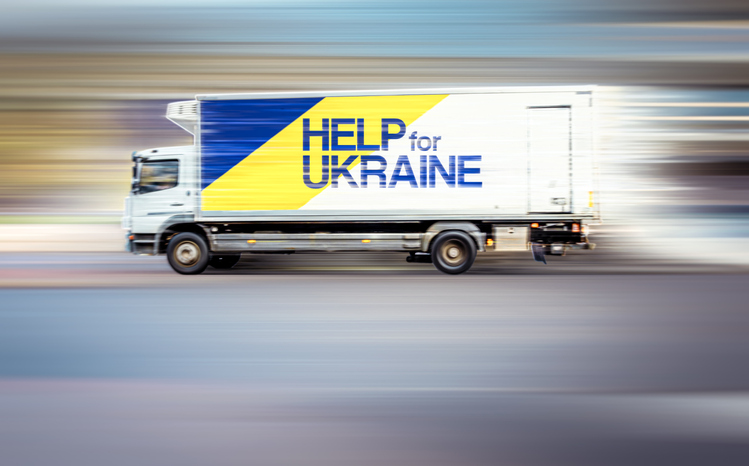BBB Wise Giving Alliance is pleased to release the sixth entry in a series of posts by Kateryna (Katya) Zhuk. Katya heads a Ukraine charity monitoring organization, Charity Tuner. This organization, along with BBB Wise Giving Alliance, is a member of an association of standards-based charity monitors from around the world.
Humanitarian Aid in Ukraine
By Kateryna Zhuk
As the end of the year approaches, Ukrainians face another hard winter. Of course, we have been working to restore infrastructure and reconnect electricity. We try to install generators in yards (and avoid their theft) or connect generators at home (although few people can afford them). We have stocked up on some gas burners and firewood, we are exchanging warm clothes and making a stock of candles. Humanitarian aid, however, is still an essential need.
In recent months, there have been discussions that some previous aid for Ukrainians disappeared due to lack of reporting, accounting and/or theft. That is why a specialized Ukrainian government ministry decided to reach out to large Ukrainian foundations to help solve the problem. During the last six months, there have been many meetings about managing aid. There also was outreach to international institutions with experience in providing relief assistance in a thorough manner.
Although the initial plan was to launch aid-management changes by December 1, 2023, the system required additional attention and a new target date of April 1, 2024, has been set. In the meantime, humanitarian aid is still an urgent issue for those:
– whose homes were destroyed,
– who are dependent on medications,
– who have nothing to eat, not to mention things for the kids,
– and many others who are rarely thought of because the problems are no longer receiving the global attention that they once did.
Perfect world (a Ukrainian’s dream)
Ideally, the process should be simple. There are people who need help. People apply to the foundation. The foundation makes a list and applies to a foreign charity to provide the specified items/services. The organization, which has the resources, responds, and distributes everything with photos and accompanying receipts.
While most donors imagine the process in this way, the reality can be quite different. An acquaintance complained to me, “Look, I gave up on humanitarian aid a year ago. I tried it once and they almost declared me a fraud because I didn’t send pictures of happily dressed children a week later.”
Another friend of mine was offered a whole truckload of children’s clothes and stationery a year ago. Having happily agreed, knowing the needs of different families, including displaced children and orphanages, he waited for the humanitarian aid and planned heavy and complicated logistics. A post office, where the humanitarian aid was to be shipped, was targeted by a missile. As a result, he could not quickly deliver everything as planned. And he received a complaint that took my breath away: “You didn’t report in a week!”
These are not isolated incidents. Humanitarian aid faces many challenges: broken roads, shelling, the front line, vehicle inspections, and the movement of people inside a warring country. There is also the pile of documents for preparing the import of cargo and subsequent reporting to the tax authorities. Some donors may need to decide what is more important, photos with smiling children or providing aid for the sake of effective help.
Searching
There is no single resource that provides a list of all humanitarian organizations helping Ukrainians (I understand all the risks, but I am seriously considering creating one). Therefore, in most cases, the search for help is not always effective. Or, the Ukrainian foundation is ready to take whatever is offered in the hope others will be helped. All of this requires additional resource to find aid recipients, to process unfamiliar products, and to set up new logistics.
Costs
Some small Ukrainian foundations declined to accept humanitarian aid because they did not have enough resources to pay an accountant/driver/another manager. Humanitarian aid, like any other kind of aid, requires administrative resources. One may also need the knowledge of working with customs, drivers, escorts, financiers, accountants, and/or lawyers. Also, a manager will need to collect requests, print lists, post on Facebook, and make reports. Of course, this administrative activity is much cheaper than the contents of the shipment but must be addressed to be accountable to donors.
New system
In the past 30 years, Ukrainians have gone through everything imaginable: post-Soviet semi-starvation, two revolutions, a pandemic, occupation, war with incessant bombing, and drones. We are used to solving our problems ourselves and not relying on the state. This time, it is impossible to pull it all out alone.
We are far from legislative reforms in the sphere of charity and social activity, there is a lot of bureaucracy (although we are trying to reduce it). The very practitioners who have been helping people for years are trying to make all the changes for the better. Because there are fraudsters in all countries of the world and practically in any sphere of activity, charity is no exception, and everyone tries to fight them.
If you don’t know which organizations to pass help through or you are not sure that the request for help came from an effective working organization – write to me, let’s check it out together. Because the most important goal is to help people. And Ukrainians are ready to do everything to make sure that this help comes to the right place.
But please remember, this winter we still need generators, medicine, and hygiene products.
Katryna Zhuk
Warsaw, Poland
December 19, 2023
Links to donate humanitarian aid and communications:
https://www.helpeplus.org/
https://skarbnitsya.org/
https://pomogaem.com.ua/index.php
https://www.facebook.com/groups/Monsters.Inc.Odessa/
https://krona.niko.ua/
https://krab.org.ua/
https://krylanadiyi.org.ua/
https://svoyi.org.ua/
Notes from BBB Wise Giving Alliance:
The links to charitable organizations listed above were compiled by the author, Kateryna Zhuk. Since these organizations are not located in the United States, contributions from Americans may not be deductible as charitable donations for federal income tax purposes. BBB Wise Giving Alliance has not evaluated these charities and has not determined whether they meet the BBB Charity Standards. The views, information, or opinions expressed in this piece are solely those of Kateryna Zhuk and do not necessarily reflect the views of the BBB Wise Giving Alliance and its employees.
Heart of Giving Podcast
This week’s Heart of Giving Podcast features Kitty Block, President & CEO, The Humane Society of the United States, (a BBB Accredited Charity). Kitty Block discusses how the charity addresses its mission of ending the cruelest practices toward animals, rescuing and caring for animals in crisis, and expanding the influence and impact of the animal protection movement worldwide.
Recent Reports
We are always working with charities to publish or update reports for donors. Visit Give.org or local BBBs to check out any charity before giving. Our recently evaluated charities include:
Finally, remember to let us know by going to www.give.org/charity-inquiry if you are interested in seeing a report on a charity not on the list and we will do our best to produce one.





